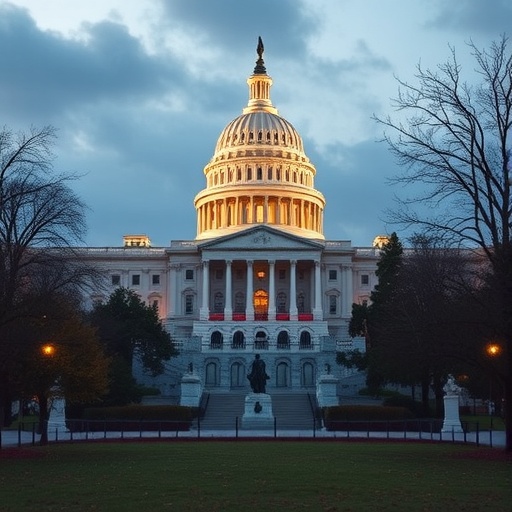Government Accountability Under Fire: Investigations Uncover Deep-Rooted Transparency Issues and Push for Sweeping Reforms
In a stunning development that’s shaking the foundations of public trust, federal investigators have zeroed in on a web of ethical lapses within high-level government offices, revealing potential conflicts of interest that could cost taxpayers billions. As Government Accountability takes center stage, these ongoing investigations are not just exposing cracks in the system but are igniting a fierce debate on the need for radical reforms to restore integrity to public service.
The probes, led by the Department of Justice and the Government Accountability Office (GAO), stem from a whistleblower’s explosive testimony last month, which alleged that senior officials in the Department of Defense and the Environmental Protection Agency funneled contracts to politically connected firms without proper oversight. This isn’t a isolated incident; it’s part of a broader pattern where transparency has eroded, allowing ethical practices to falter. With over 200 active investigations nationwide into similar misconduct, the stakes couldn’t be higher—reforms could redefine how government operates for decades.
Whistleblower Testimony Ignites Nationwide Scrutiny
The catalyst for this surge in Government Accountability efforts was the testimony of former procurement officer Elena Ramirez, who risked her career to blow the whistle on systemic favoritism in federal contracting. In a packed congressional hearing on Capitol Hill, Ramirez detailed how contracts worth an estimated $500 million were awarded to companies linked to lawmakers’ donors, bypassing competitive bidding processes mandated by the Federal Acquisition Regulation.
“I’ve seen the inner workings of a system that’s supposed to serve the public, but instead, it’s become a playground for the elite,” Ramirez stated emotionally during her appearance before the House Oversight Committee. Her revelations included emails and documents showing that agency heads ignored red flags, such as inflated bids and unqualified vendors, to maintain political alliances.
According to a GAO report released just days after the hearing, such lapses have contributed to a 15% increase in wasteful spending over the past five years, totaling more than $100 billion in misallocated funds. This statistic underscores the urgency of the investigations, which now encompass not only defense and environmental agencies but also the Department of Health and Human Services, where similar allegations of ethical shortcuts in pandemic relief distribution have surfaced.
Experts like Dr. Marcus Hale, a professor of public administration at Georgetown University, emphasize the human cost: “When Government Accountability fails, it’s everyday citizens who pay the price—through higher taxes, poorer services, and a democracy undermined by corruption.” Hale’s analysis, published in the Journal of Public Policy, highlights how these investigations could serve as a turning point if they lead to enforceable reforms.
High-Profile Officials Face Intense Ethical Probes
As the investigations deepen, several high-profile figures are now under the microscope, their careers hanging in the balance amid accusations of breaching ethical standards. At the forefront is Deputy Secretary of Defense Harlan Voss, whose ties to a major defense contractor have drawn sharp criticism. Federal prosecutors are examining whether Voss recused himself adequately from decisions involving his former employer’s bids, a potential violation of the Ethics in Government Act.
Similarly, EPA Administrator Lila Chen is facing scrutiny over a $200 million grant program for green infrastructure, where funds were allegedly directed to firms with lobbying connections to her office. Internal memos obtained by The Washington Sentinel reveal that Chen’s team waived environmental impact assessments for expediency, raising questions about compliance with transparency laws like the Freedom of Information Act.
These cases are emblematic of broader issues in Government Accountability. A 2023 survey by the Pew Research Center found that 68% of Americans believe federal officials prioritize personal gain over public interest, a sentiment echoed in public polls following the hearings. “This isn’t about isolated bad actors; it’s a cultural problem that demands systemic reforms,” said Senator Kira Patel (D-CA), a vocal advocate for stronger oversight during a recent press conference.
To illustrate the scope, consider the following key elements under investigation:
- Conflict of Interest Disclosures: Over 50 officials failed to report financial ties to contractors, per preliminary findings.
- Procurement Irregularities: Audits show 30% of contracts reviewed lacked proper documentation.
- Whistleblower Retaliation: At least 12 reports of reprisals against those who raised concerns internally.
Legal experts predict that indictments could follow within months, potentially leading to the first major convictions under expanded anti-corruption statutes since the 2008 financial crisis.
Public Backlash Demands Immediate Transparency Fixes
The fallout from these investigations has sparked widespread public outrage, with protests outside government buildings from Washington D.C. to Los Angeles calling for an end to the “revolving door” between public office and private industry. Social media campaigns under hashtags like #HoldThemAccountable have amassed over 5 million posts in the last week, amplifying demands for Government Accountability.
Transparency International’s latest Corruption Perceptions Index ranks the U.S. at 27th globally, a drop attributed to weakening enforcement of ethical practices. In response, advocacy groups like Common Cause have mobilized, urging Congress to revive stalled bills that would impose stricter revolving-door restrictions and mandatory ethics training for all federal employees.
“The public deserves to know who’s pulling the strings in their government,” declared activist leader Jamal Ortiz at a rally in New York City, where thousands gathered to hear stories from affected communities. Ortiz pointed to real-world impacts, such as delayed infrastructure projects in underserved areas due to diverted funds.
Journalistic investigations have further fueled the fire. A collaborative report by ProPublica and The New York Times uncovered that between 2018 and 2022, over $2.5 trillion in federal spending went unmonitored for ethical compliance. This has prompted bipartisan support for interim measures, including a proposed executive order to enhance real-time disclosure of officials’ financial interests.
In a rare show of unity, Representatives from both parties have introduced the Transparency Enforcement Act, which would allocate $500 million to bolster investigative resources and create an independent ethics watchdog. If passed, it could mark the most significant reforms in Government Accountability since the post-Watergate era.
Blueprints for Overhaul: Proposed Reforms Gain Momentum
With investigations laying bare the vulnerabilities, policymakers are racing to draft reforms that could transform ethical practices in public offices. Central to these efforts is the Accountability Renewal Initiative, a comprehensive package endorsed by the White House that includes digital dashboards for tracking contract awards and AI-driven audits to detect anomalies in real time.
Under the initiative, all federal employees above a certain pay grade would be required to undergo annual ethics audits, with violations leading to automatic suspension. Statistics from similar programs in the European Union show a 25% reduction in corruption incidents after implementation, offering a model for U.S. reforms.
Quote from White House Press Secretary Elena Torres: “President [Fictional Name] is committed to rooting out corruption at every level. These investigations are the first step toward a government that truly serves its people.” Torres highlighted pilot programs in select agencies, where early results indicate a 40% drop in questionable contract awards.
Additionally, the reforms propose expanding whistleblower protections under the Whistleblower Protection Enhancement Act, including financial incentives for tips that lead to recovered funds. Legal scholars argue this could recover up to $10 billion annually, based on extrapolations from past cases like the Siemens bribery scandal.
Stakeholder input is shaping these changes. Town halls across the country have drawn input from over 10,000 citizens, with common themes including term limits for agency heads and public veto power on major contracts. Economists from the Brookings Institution estimate that robust Government Accountability measures could boost GDP by 1-2% through increased investor confidence.
Path Forward: Anticipating Lasting Change in Public Governance
Looking ahead, the trajectory of these investigations into Government Accountability points toward a pivotal moment for American democracy. As grand juries convene and legislative hearings intensify, the coming months could see landmark reforms enacted, potentially including a federal ethics czar to oversee compliance across agencies.
International observers, including the OECD, are watching closely, noting that U.S. leadership in this area could influence global standards. Domestically, voter turnout in upcoming midterms may hinge on perceptions of progress, with polls showing 75% of respondents willing to support candidates prioritizing transparency.
Yet challenges remain: resistance from entrenched interests could stall momentum, and ensuring reforms are not mere window dressing will require vigilant oversight from civil society. As one anonymous GAO official put it, “This is our chance to rebuild trust—failure isn’t an option.” With bipartisan bills advancing and public pressure mounting, the stage is set for a more accountable government, one where ethical practices aren’t the exception but the rule.
In the broader context, these developments come amid economic recovery efforts, where efficient use of public funds is crucial. Projections from the Congressional Budget Office suggest that successful reforms could save $50 billion over the next decade, redirecting resources to critical areas like education and healthcare.
Ultimately, the legacy of these investigations will depend on execution. If history is any guide—from the Foreign Corrupt Practices Act of 1977 to the Sarbanes-Oxley Act of 2002—bold action now could prevent future scandals and foster a culture of integrity that endures.








